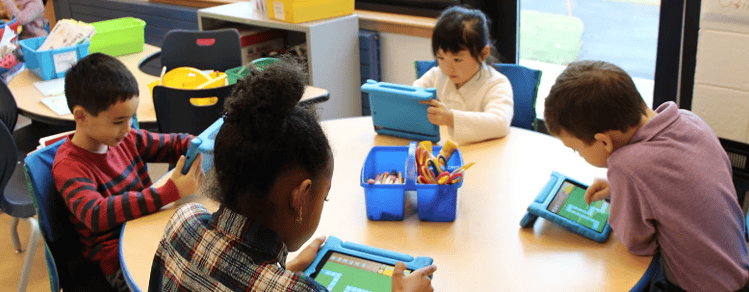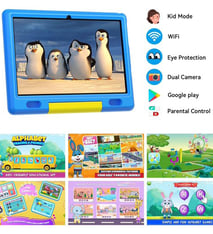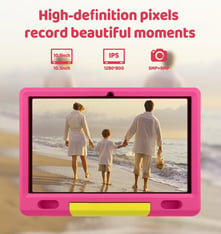
Are Tablets for Toddlers Beneficial? Exploring Their Role in Early Childhood Education
11/15/20243 min read











The use of technology in early childhood education has sparked both enthusiasm and concern. Tablets, in particular, have been lauded for their ability to provide interactive, multimedia-rich content. However, the rapid integration of these devices into the lives of toddlers has raised questions about their developmental appropriateness and potential long-term effects.
This article examines the potential benefits and risks of using tablets in early childhood education, grounding the discussion in scientific evidence and offering practical recommendations.
Benefits of Tablet Use in Early Education
Tablets can provide interactive and adaptive learning experiences tailored to a child’s developmental level. Educational apps often incorporate multimedia elements such as animations, sounds, and tactile interactions, which can support skills like problem-solving, language acquisition, and fine motor coordination.
For example, research indicates that toddlers who use language-focused apps show improvement in vocabulary and phonological awareness compared to those who do not. However, these gains are dependent on the quality of the app and its alignment with developmental needs.
2. Accessibility to Educational Content
Tablets enable access to a wide variety of educational resources, including e-books, games, and instructional videos. This accessibility can be particularly beneficial for children in remote areas or those with limited access to traditional educational tools.
The interactive nature of tablets often captures toddlers’ attention more effectively than traditional methods. This engagement can motivate children to participate in learning activities, making it easier for educators and parents to introduce educational concepts.
Not all apps and games are designed with educational value in mind. Some may contain distracting elements or advertisements, which can detract from learning and even expose children to inappropriate content.
Recommendations for Balanced Tablet Use
1. Select High-Quality Educational Apps
Parents and educators should prioritize apps developed with input from child development experts. These apps should focus on skills such as literacy, numeracy, and problem-solving.
Co-engagement, where caregivers interact with children during tablet use, can enhance learning outcomes. This approach helps contextualize the content and ensures toddlers understand and retain information.
Establishing boundaries around screen time is essential. Incorporating tablet use as part of a balanced daily routine that includes physical activity, unstructured play, and face-to-face interaction supports holistic development.
4. Encourage Active Participation
Use apps that require children to actively engage rather than passively consume content. Interactive activities promote critical thinking and creativity.
Tablets, when used thoughtfully, can be valuable tools in early childhood education. They offer opportunities for interactive and engaging learning, but their use must be balanced with other developmental needs. Parents and educators should focus on quality content, set boundaries, and actively participate in the child’s digital experiences to maximize benefits while minimizing risks.
Future research should continue to explore the long-term impacts of tablet use on toddler development, ensuring that technological integration supports rather than hinders childhood growth.
Explore
Engaging tips for kids and tablet usage.
Learn
Play
123-456-7890
© 2024. All rights reserved.
